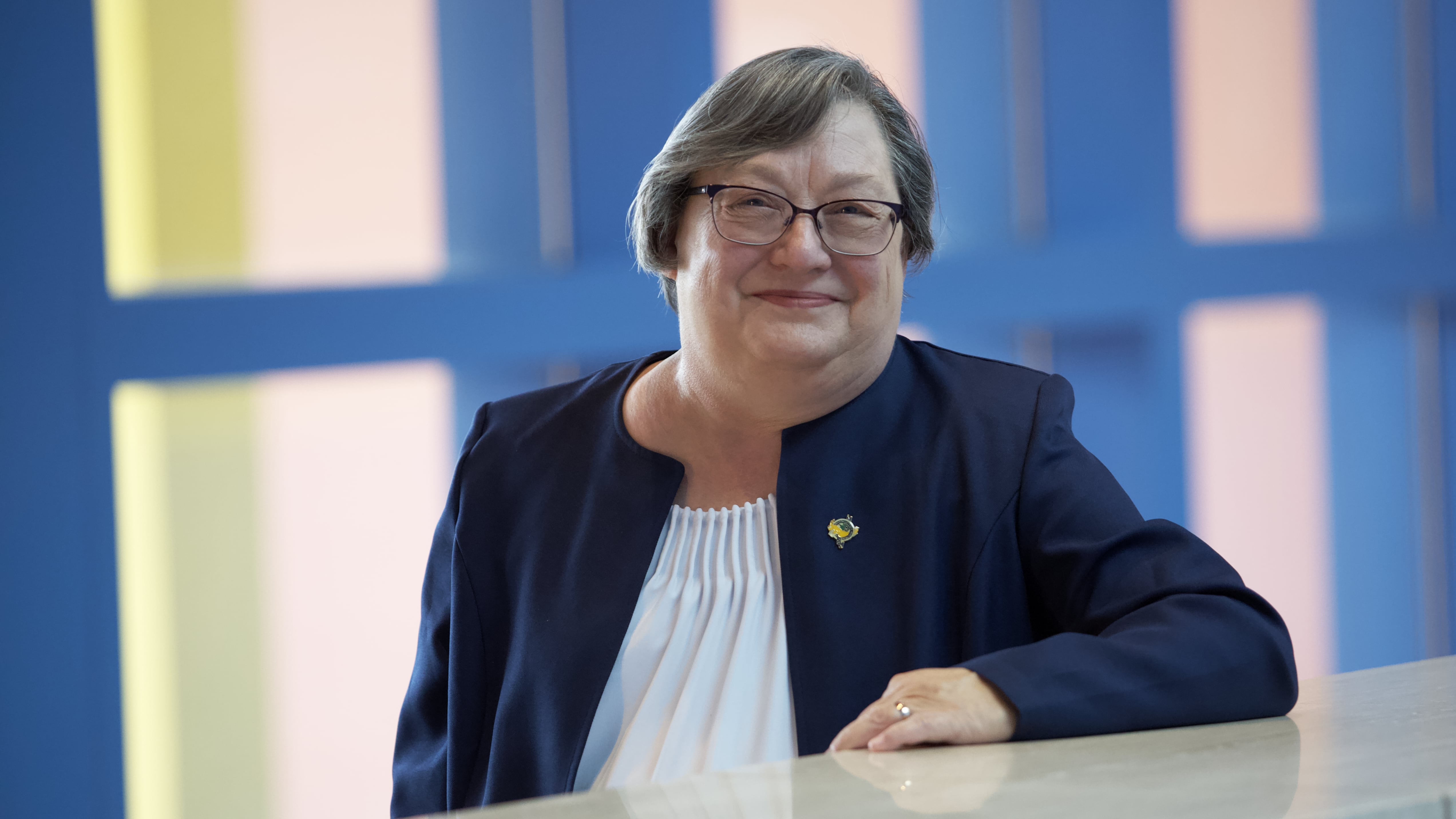Highest regards

When Cynthia Larive began her tenure at UC Santa Cruz in July 2019 as the new chancellor, she already knew she was joining a university with a commitment to impactful research. But a few months into the job, she got a reminder of just how highly the university is regarded. In November, the Association of American Universities (AAU), an exclusive group of universities at the forefront of research and academics, named UCSC as one of its newest members.
“AAU membership is such a great recognition of the ongoing contributions of our faculty, students, and staff,” said Larive.
The AAU includes only 65 member universities, chosen based on factors including faculty citations and awards, research funding, and commitment to undergraduate and graduate education. Together, AAU members work to shape educational policy at both institutional and national levels.
UCSC is one of the youngest schools invited to join the AAU, and one of only 15 without a medical school. “To be a university that does not have a medical school and be admitted to the AAU is really something to be proud of,” said Larive. The university’s strong focus on interdisciplinary research, undergraduate student success, and diversity and inclusion all help it stand out, she said.
Larive is no stranger to what it takes to run a successful research enterprise. At UC Riverside, Larive was both a professor of chemistry and served as provost and executive vice chancellor. Her research involved developing improved tools for chemical analysis used to study everything from human biology to food—one project had her characterizing the compounds in pomegranate juice.
“I’ve been involved in many collaborative research projects and worked with people who weren’t chemists to tackle important and complex problems,” said Larive, “And this informs the way I think about things.” This big picture perspective that she’s such a fan of is already prevalent at UCSC, she said, and AAU membership is a prestigious, very public confirmation of this. In recent years UCSC researchers have come together to launch large-scale, cutting-edge initiatives in genomics, global climate change, coastal policy, and agroecology, to name just a few.
Moving forward, Larive plans to fully support UCSC faculty in their hands-on approach to shaping the university’s research program—they’re the ones who can spot areas ripe for new research and collaborations, she said. “We’re on a great trajectory already.”

